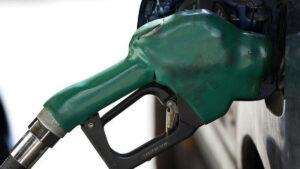The World Bank, as again warned that Nigeria is currently on life-support with death imminent if it chooses to sustain the current subsidy on petroleum products.

The world Bank stated this on Wednesday against the backdrop of the Nigerian Government’s projection to spend N6.7trillion on petrol subsidy payments in 2023,
The global lender said this through Rajul Awasthi, senior public sector specialist, domestic resource mobilisation, who spoke at a virtual pre-summit themed: Critical Tax Reforms for Shared Prosperity, an event organised by the Nigerian Economic Summit Group (NESG).
Stressing that that Nigeria would have no choice but to get rid of subsidy eventually, he said that between 2015 and 2019, Nigeria’s non-oil revenue was among the lowest in the world and as a result the second lowest in spending, illustrating his position with a slide, which showed Nigeria’s Development Update (NDU).
Awasthi, who said Nigeria remained in an unfavourable economic situation due to dwindling revenue, was averse to the continued payment of trillions of naira on fuel subsidy by the government and the attendant economic challenges.
Against the backdrop of The Federal Government’s projection to spend N6.7trillion on petrol subsidy payments in 2023,
Awasthi argued that Nigeria was in an unfavourable economic situation due to dwindling revenue, the continued payment of trillions of naira on fuel subsidy by the government and the attendant economic challenges.
He said that the country’s oil revenue was also falling even when oil prices were higher, adding: “Nigeria has the largest economy in Africa and the largest country in Africa by population, so it is critical to Africa’s progress. There is no doubt about that.
Read Also: $1.9bn Royalty, Taxes To Nigeria In Two Years – Shell
“But the government of Nigeria, from the public finance perspective, is facing an existential threat. Let’s not downplay the situation. That is the actual reality.
“Nigeria is 115th out of 115 countries in terms of the average revenue to Gross Domestic Product ratio. Despite the oil prices rising the way they have been, net oil and gas revenues have been coming down because of the tremendous impact of the subsidy.
“So, what is going to happen in 2022? The federation’s revenues are going to be significantly lower. They are already very low, and Nigeria is already the lowest in the world out of 115 large countries and this year, it’s going to be lower than what it was in 2020 because of the debilitating impact of fuel subsidy.”
Part of his treatise on how to salvage the situation was to bridge the gap in the non-oil sector, value-added tax (VAT) compliance gaps, which he described as immense, adding that tax expenditures should be rationalised, as well.
Emphasising the need for technology deployment in tax administration and data sharing between the Federal Inland Revenue Service (FIRS) and the states’ internal revenue services to boost the revenue from personal income tax.
Kindly like us on Facebook/twitter















